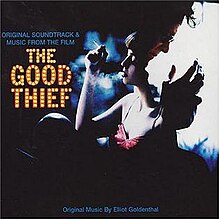
Serge Gainsbourg was a French musician, singer-songwriter, author, filmmaker and actor. Regarded as the most important figure in French pop whilst alive, he was renowned for often provocative and scandalous releases which caused uproar in France, dividing its public opinion, as well as his diverse artistic output, which ranged from his early work in jazz, chanson, and yé-yé to later efforts in rock, funk, reggae, and electronica. Gainsbourg's varied musical style and individuality make him difficult to categorize, although his legacy has been firmly established and he is often regarded as one of the world's most influential popular musicians.

Elliot Goldenthal is an American composer of contemporary classical music and film and theatrical scores. A student of Aaron Copland and John Corigliano, he is best known for his distinctive style and ability to blend various musical styles and techniques in original and inventive ways. He won the Academy Award for Best Original Score in 2002 for his score to the motion picture Frida, directed by his longtime partner Julie Taymor.
Victoires de la Musique is an annual French award ceremony where the Victoire accolade is delivered by the French Ministry of Culture to recognize outstanding achievement in the music industry. The classical and jazz versions are the Victoires de la musique classique and Victoires du Jazz.

The Good Thief is a 2002 British-French crime comedy film written and directed by Neil Jordan. It is a remake of the French film Bob le flambeur (1955) by Jean-Pierre Melville. The film, shot in both Monaco and Nice, France, follows a heroin-addicted retired thief through the setup and completion of one last job.

Frida is the original soundtrack album, on the Universal label, of the 2002 Academy Award- and Golden Globe Award-winning film Frida starring Salma Hayek, Alfred Molina, Mía Maestro and Ashley Judd. The original score was composed by Elliot Goldenthal. The soundtrack features songs by various artists.
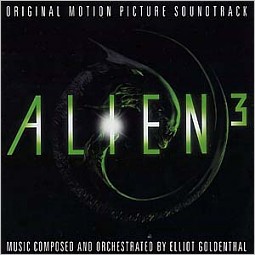
The avant-garde Alien 3: Original Motion Picture Soundtrack was written for the motion picture of the same name. Scored by Elliot Goldenthal, it was his first big mainstream score; he described it as an experiment and spent a whole year creating it.

Heat is the soundtrack album to the 1995 film Heat. The score is compiled mostly with Elliot Goldenthal's orchestrations although there are a variety of other artists featured including U2/Brian Eno project Passengers, Lisa Gerrard, Moby and Terje Rypdal.

Titus is the original soundtrack to the 1999 motion picture Titus. Elliot Goldenthal wrote the score for the film, an adaptation of Shakespeare's first, and bloodiest, tragedy Titus Andronicus; written and directed by Julie Taymor, Goldenthal's long-time friend and partner. The only non-Goldenthal piece is an old Italian song called "Vivere" performed by Italian singer Carlo Buti.
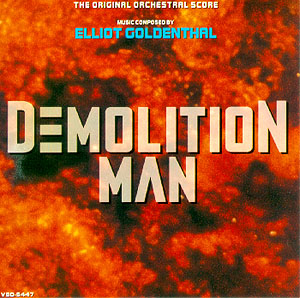
Elliot Goldenthal scored the soundtrack for the movie Demolition Man. It is an example of his off-beat style and use of unconventional techniques in film score, incorporating big brass clashes and complex, dramatic string arrangements.
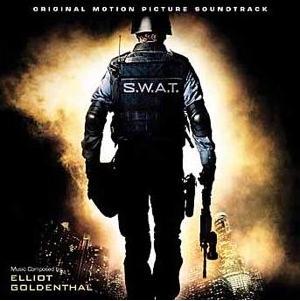
S.W.A.T. is the soundtrack score for the 2003 action film S.W.A.T., based on the 1970s TV series of the same name, composed by Elliot Goldenthal.

Elliot Goldenthal scored the 1994 film Interview with the Vampire, working again with director and frequent collaborator Neil Jordan.
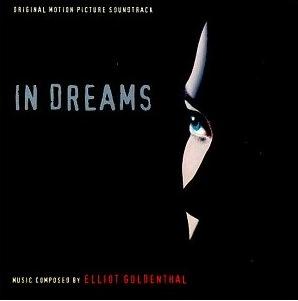
The score to the psychological thriller In Dreams, by Elliot Goldenthal, is an avant-garde work filled with his trademark techniques and dissonance. Composed in 1999, and working again with frequent collaborator Neil Jordan, it also features songs by Roy Orbison and The Andrews Sisters.
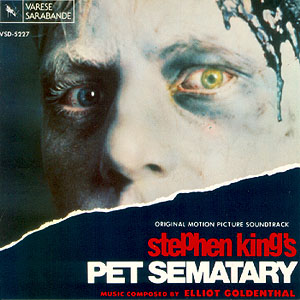
Pet Sematary is the soundtrack album for the film of the same name. Produced by Elliot Goldenthal, it was released in 1989.

Batman Forever: Original Motion Picture Score Album is a 1995 Grammy-nominated film score album for Batman Forever, composed by Elliot Goldenthal. It was released in conjunction with its soundtrack counterpart. Despite Goldenthal having recorded over 2 hours of music, the soundtrack only had 45 minutes before La-La Land Records released an expanded version in 2012. The score features big brass, strings and discordant noises while maintaining an anthemic sound. Regarding the villainous leitmotifs, Goldenthal said Two-Face features paired notes and doubled beats while being inspired by Russian composers such as Sergei Prokofiev and Dmitri Shostakovich, and Riddler has a sound reminiscent of old science fiction B-movies with a theremin. On the U2 single "Hold Me, Thrill Me, Kiss Me, Kill Me", there is a track titled "Theme from Batman Forever" composed by Goldenthal; this can also be found on the expanded release issued in 2012.
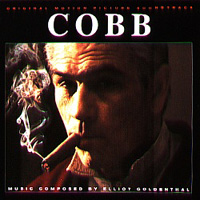
The score to the film Cobb by Elliot Goldenthal was released in 1994.

Elliot Goldenthal scored the 1997 movie The Butcher Boy; the soundtrack was released in 1998. It marks another collaboration with director Neil Jordan.
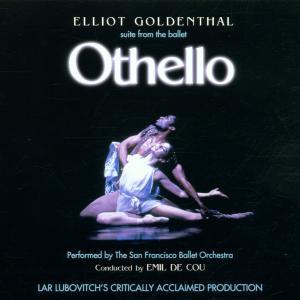
Othello is a ballet in three acts based on the play of the same name by William Shakespeare. Choreography by Lar Lubovitch is set to an orchestral score composed by Elliot Goldenthal and released commercially on the Varèse Sarabande label. Originally produced in 1997, the ballet was commissioned by the American Ballet Theatre and the San Francisco Ballet.
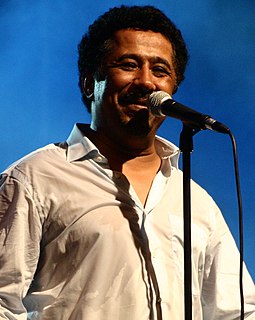
Khaled Hadj Ibrahim, better known by his mononym Khaled, is an Algerian musician, singer and songwriter born in Oran. He began recording in his early teens under the name Cheb Khaled. He was crowned "King of Raï" in the first Raï festival in Oran and has since become the world's best-known Arab singer ever. Khaled helped transform the rai music in his native Algeria, and then went on to make it a part of the global music scene. And with 10 diamond, platinum, and gold albums, as well as the highest-selling Arab album in history, he's the star all other rai singers aspire to be,His most famous songs are "Didi", "El Arbi", "Abdel Kader (song)", "La Poupée qui fait non", "Wahran Wahran", "Bakhta", "Aïcha" and "C'est la vie" as well as "Alech Taadi", which was prominently featured in the 1997 film The Fifth Element.
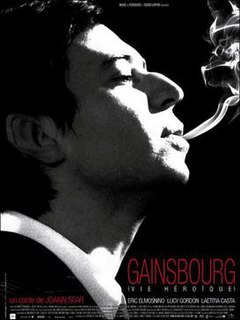
Gainsbourg: A Heroic Life is a 2010 French drama film written and directed by Joann Sfar. It is a biopic of French singer Serge Gainsbourg.
Salut les copains is a series of albums released through Universal Music France to commemorate the best of music featured in French scene as sponsored by the "Salut les copains" radio program in France and the French Salut les copains magazine. The tracks include French original singles, French-language covers of known hits as well as European and American hits popular in France. The track list is a representative wide selection of the "Yé-yé" generation of French music.
